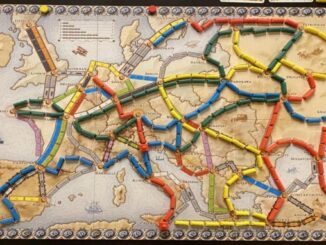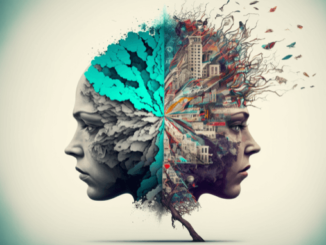
“All of man’s misfortune comes from one thing, which is not knowing how to sit quietly in a room.” – Pascal, Pensées (1670)
“The only good thing for man is to be diverted so that he will stop thinking about his circumstances.” – Pascal, Pensées (1670)
Philosophy of the Bedroom and Home Entertainment
In his Pensées, French philosopher Blaise Pascal introduces us to two ideas that resonate particularly in the early 2020s:
First, an observation: It is part of our human condition – and not just a modern trend – to be unable to “sit quietly in a room”, as it echoes our mortality. At all times, humans have suffered and avoided loneliness, boredom, and the anxiety linked to facing our fragile existence.
Second, a workaround: Seeking solace in activity is an escape from experiencing our metaphysical fears. Pascal gives a definition of entertainment as a necessity to prevent us from overthinking our finitude and embrace our restlessness. Note that Pascal includes sports, war, and work within entertainment.
In 2020, two billion people have been forced into lockdown, and therefore into facing their inner fears – this accentuated by the deadly count of the pandemic. The bedroom in which we used to spend chosen and limited time in between two occurrences of outside activity, has become a physical and mental prison cell.
Following Pascal’s wisdom, at the peak of the pandemic, two philosophical attitudes have been available to help us face our confinement at home: Home Entertainment and Mindfulness. It comes as no surprise that both industries have been booming during the pandemic. Meditation apps are expected to reach $2b by 2022. Streaming services revenue increased by 30% in a year, with subscribers enjoying an average 5 subscriptions compared to 3 before the pandemic.
X-ing from Home: New frontiers and dynamics
During the pandemic, many of the activities we were used to conducting outside of the home were transferred partially or completely inside the home. As new dynamics surface, the frontier between the exterior and the interior of the home is moving.
Activities that we used to perform outside have been mostly conducted from home, bringing within the realm of the home – and with the support of online technologies – exterior elements such as: work, education, entertainment, exercising, shopping, befriending, and dating.
In addition, behaviors that are casual parts of home life have been intensified, sometimes to the point of exaltation or rupture, such as caring for each other or fighting with each other.
As part of the moving home dynamics, “escaping from home” also gained in importance to allow us to rebalance our mental health. Escaping the home, physically and virtually, changed in nature along the pandemic as we were craving for mental rest, nature hunt, and a new social.

Socializing in a distance around leisure and renewed rites of passage
If the pandemic popularized locutions such as community spread, sheltering, isolation, social distancing, it also celebrated front line heroes, essential workers, random acts of kindness, zooming, and joyscrolling. The evolution of our vocabulary reflects how the quarantine triggered our social nature. In addition to work and education, our socialization needs include connecting with family, friends, and romantic partners.
The pandemic recreated our social connections around the following modalities: sharing online activities (yoga, cooking, drawing tutorials) and conversing thanks to social networks and communication tools (Houseparty, Clubhouse, Tiktok, Amigo, Bumble), as well as nurturing distant in-person interaction (garage gym, balcony clap for heroes, outdoor movie nights).
We also revamped our rites of passage along these two lines: online graduations, streamed Thanksgiving dinner, wedding broadcast, funeral on zoom; outdoor banquet with wrapped treats, drive-through birthday party, Halloween trunk-or-treat, newborn introduction behind a window.
Our homes adapted consequently indoors with private rooms for intimate conversation, cosy area for online reception, and outdoors with garden remodeling for party hosting and garage cleaning for socially distant interaction.

Leisuring from home or from a distance
Larger access to culture is probably one of the most significant silver linings of the 2020 pandemic. As people had plenty of time closed at home, less social life, and a need to recenter themselves to balance home chores, work, and parenting, they dedicated more time to hobbies.
Reading acted as a refuge: 35% of people in the world read more books in 2020. Especially parents took more time reading with their children (Source: Global English Editing).
Culture, Music and Arts turned to AR, VR, and Mixed Reality: Museums shut their physical doors, but they created new ways for the public to tour their collections virtually (the Louvre, the MET). Paris Opera streamed its performances for free and ballet dancers filmed themselves dancing from their apartments. Stars led by Lady Gaga took part in the “One World: Together At Home” concert. Musicians gave concerts in immersive reality settings such as electronic violinist Lindsey Stirling.
Movies switch screens: As traditional theaters closed, drive-in gained in popularity. Paris offered a floating movie theater on the Seine. Streaming services have been the big winners of the pandemic with an increase of 44% in viewing time.
Sports events happened in a bubble: Many sports events have been canceled, but despite players getting COVID, NBA games were played in an isolation zone at the Disney World Bubble. Outdoors classes, garage gym, and indoor fitness had an immense success. Peloton doubled its sales in 2020.
Friends and family shared tutorials of anything possible: Cultural practice seemed less about status than acquiring new skills and sharing a common experience, be it about ballet dancing, cartooning, writing poetry, or launching a podcast!

Now what? The Future of Leisuring.
As we listen to signals from the future and investigate the driving forces in our current STEEP environment (Social, Technological, Economical, Environmental, Political), we broke down our future to three plausible scenarios:
1 – Back to the familiar: “We are social animals with physical bodies and haven’t forgotten about it. Big venues, outdoors, and travels will be fully available again.”
When the pandemic is over, we go back to our dinner parties. We welcome back the exterior world within the realm of our homes. We yearn for physical presence, body odors, non-distorted voices, human faces without masks, smiles, hugs, and more!
We have never craved that much the big outdoors, cultural life, and intellectual connections with peers. We go back to our old habits, movie nights, sports classes, travels. Renovated venues reopen and welcome large audiences for live events.
Signals:
- During the pandemic, young adults defied rules to date in hiding.
- Churches defied lockdown with back-door entrance and secret Church services.
- Our body needs vitamin D from sunlight, endorphins from exercising, oxytocin from relationships.
- $500M entertainment venue and hotel complex planned in Toronto.
2 – Pandemic-frozen: “We have tasted more immersive experiences and enjoyed it. Now comes the reign of AR/VR/MR. Culture comes to our home, it is more inclusive. Social life happens online anyway!”
The pandemic made us prioritize our relationships and we now go for lean. We avoid meeting in person unless necessary. Dating happens primarily online without leading to in-person. We move away from exterior social life to focus on the nuclear family.
The pandemic forced cultural institutions to renovate themselves. Culture is available worldwide. Mixed reality technology enables enhanced online experience. We share it in close circles in our home entertainment centers. The home has become a movie theater and the scene of our own talents.
Signals:
- We rediscover the concept of “positive solitude”.
- Tiktok launches a sexy, body-positive Silhouette Challenge.
- Clubhouse brings online dinner party-style chats.
- 2021 boom in Non-Fungible Tokens (NFT), crypto art record sales.
- Tomorrowland virtual festival set a new standard for digital events.
- Roblox’ IPO and video game boom.

3 – Creative disruption: “The pandemic scarred us, but we will grow stronger out of it. We recreate small committee quality events. A hobby marketplace develops. There is a continuity between physical and virtual, and it goes both ways. We explore new ways of being together.”
Our social nature and our tech-savviness make us adaptable and resilient under hard circumstances. We embrace different kinds of social interaction. We still enjoy “tech-free bubbles” and favor human touch. We reopen our homes.
We have discovered new ways to enjoy entertainment – arts galleries instead of big museums, small gatherings instead of large concerts. We enjoy intellectual, cultural, business, and creative conversations in small audiences and respectful settings. We also take an active part in cultural production. We give classes about hobbies and consume from others. A hobby marketplace based on mutual sharing of skills emerges.
Signals:
- During a funeral over zoom, despite missing the human touch, participants appreciate the possibility to convey participants from all over the world and make it a creative moment with a talent show and live emotions.
- French art galleries have seen record numbers of visitors end of 2020.
- Board game market gained 20% in 2020.
- Children invent versions of Among Us “IRL” extending online gaming to real life gaming.
- Clubhouse grew from 600,000 users in December 2020 to over six million in February 2021.
The objectives of foresight and futurism are to help us prepare for these plausible futures and to seize opportunity within these worlds. These scenarios might happen at different time scales (short-term reaction, mid-term innovation, long-term foresight vision) in different areas of the world. As vaccination is moving along, some countries are showing great signs of openness and physical social revival such as Israel, while others are in between reopening and closing again such as France and Germany, and others seemed to go through a slow but steady recovery process such as the U.S.A.
- Leisuring from Home: The Future of Social Life, Entertainment, and Culture? - 18th March 2021
- Stories from the Future - 16th March 2021





Be the first to comment